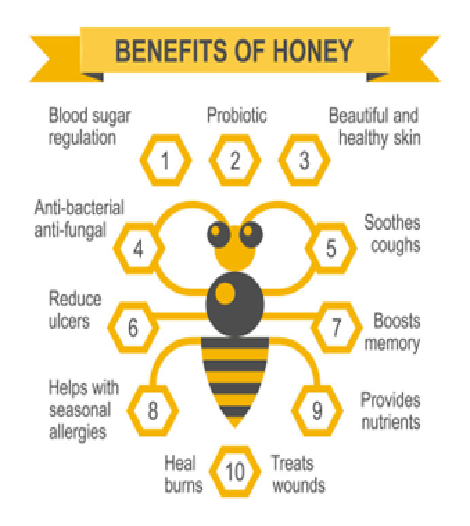HONEY BEE FOREST
Significance
01. Honey bees are chief pollinators of
- Important crop plants
- Essential fruit and vegetable crops.
- Native wild plants


02. Play a key role in every aspect of ecosystem and maintain a balanced and healthy ecosystem.
03. Contribute to complex interconnected ecosystems.
04. Are an important part of the food chain.
05. Key indicators of Environmental pollution.
- They are economically important, Source of following products.
- Honey – food prepared for bees by bees. Tastes delicious, offer numerous health benefits, rich in antioxidants, rich source of glucose, fructose, water, vitamins and minerals.
- Bee wax – useful in preparation of cosmetic products, various kinds of polishes and candles.


- Propolis (bee resin) – role in treating inflammation, burns, abscesses and minor wounds
- Bee venom – extracted from worker honey bees’ sting, useful in treating Rheumatoid arthiritis.
- Royal jelly – worker honey bees produce this milky secretion for the nourishment and development of queen bees. It’s a great health tonic, fights against the aging effects and boosts the immune system in humans.
- Bee pollen – are the pollen balls collected and stored by bees as their food source. A great source of essential vitamins, minerals and amino acids for humans.
Causes of threat to Honey bee population
- Habitat loss due to deforestation, urbanization.
- Intensive farming practices
- Climate breakdown
- Air pollution
